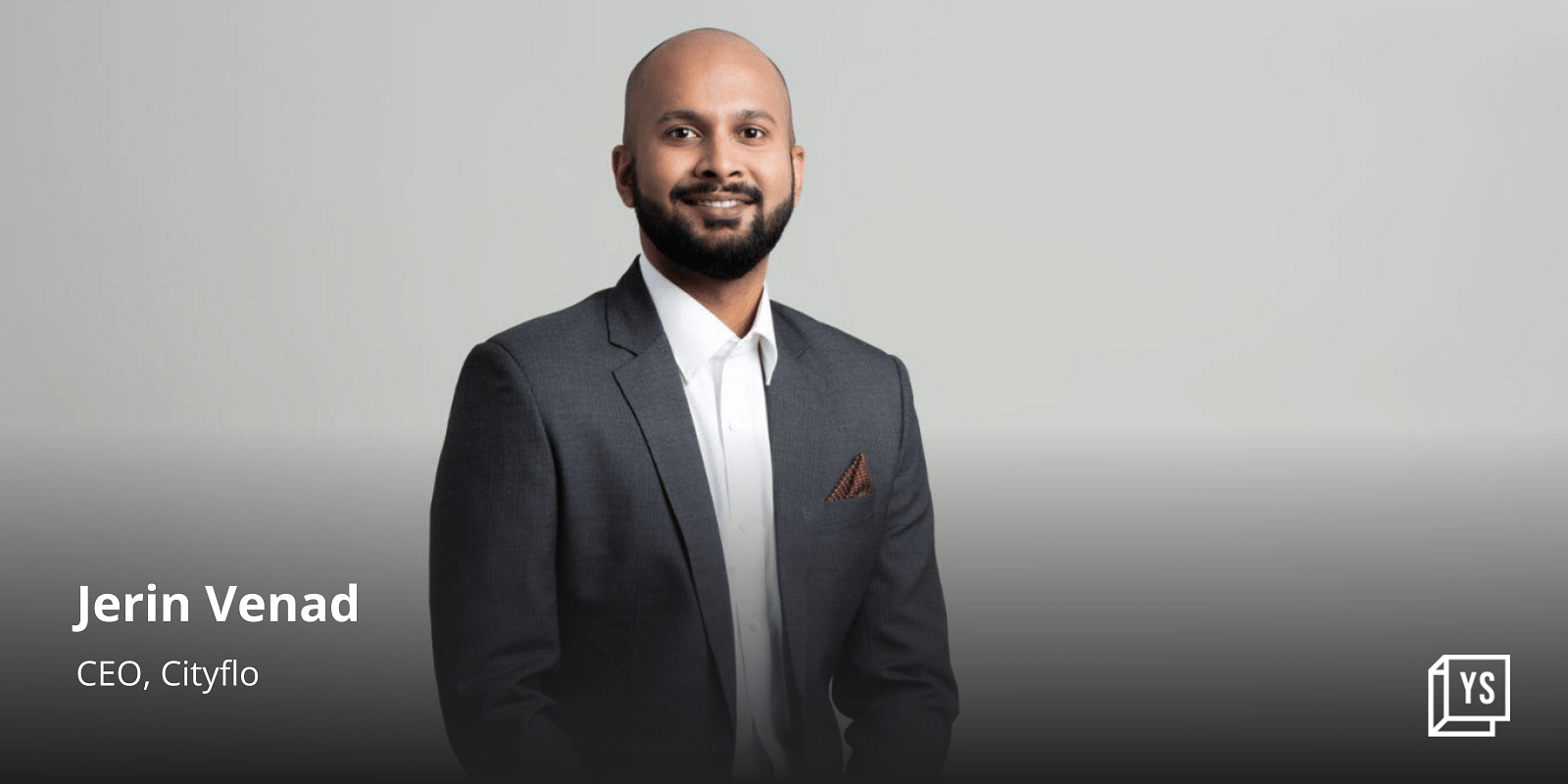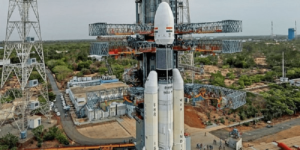For many working professionals, commuting to the office and back is a nightmare. A MoveInSync report stated that Indians spend over two hours every day commuting to the office. This is due to the influx of single-passenger cars that clog the roads, forcing commuters in Bengaluru alone to spend around 243 hours on the road every year, according to a survey.
This called for a very simplified solution to make mass transit commuting a reality.
Jerin Venad, Ankit Agrawal, Rushabh Shah, and Sankalp Kelshikar came together in May 2015 to found , a Lightbox Ventures and India Quotient-backed mobility startup that works to offer office-going professionals in metropolitan cities affordable and convenient bus service.
Cityflo founders
The beginning
Mumbai-based Cityflo started with a single-point focus on offering an alternative tech-based bus service solution. Its tempo traveller buses cost office-goers only Rs 60 per ride.
“We had the app and the tech, making it easier to book and easy to cancel. This was our initial operation thesis, but in about a year, we figured that that model wasn’t viable,” shares Jerin Venad, CEO and Co-founder of Cityflo, in a conversation with YS.
The feedback from commuters revealed that they were willing to pay more for a better service so that they didn’t have to drive in the traffic.
“Our lazy assumption was that people wanted an improvement over public transport, and wrongly assumed that a person with a car was happy,” he admits.
To compete with personal cars, Cityflo decided to evolve from being a bus service to offering premium office rides. It gradually moved from tempo travellers to using swanky BharatBenz buses.
The startup now charges Rs 185 per ride, with that cost coming down to Rs 148 with a subscription. The app has over one lakh downloads and a 4.4 rating on Google Play Store. It’s also available for iOS.
“Though we are asset-light, we strictly define what kind of experience to offer because our as per our understanding of the market, there is a need for a new mode of commute and not a technology solution,” Jerin adds.
He further states that close to 80% of the customers are car owners.
At present, the startup connects popular residential areas across Mumbai. The co-founder says that Cityflo’s routes are selected after considering several critical factors such as the location of high-density corporate hubs and residential areas.
The company currently undertakes 8,000 rides daily and 150,000 monthly across 16 routes in Mumbai using 160 buses. It aims to become the preferred mode of commute for India’s white-collar professionals.
Cityflo app
Challenges
Like the roads in the country, the company’s journey was full of obstacles. Jerin says that delivering an airline-like service needed an overhaul at all levels—such as procuring buses, vehicle performance, maintenance, drivers, cleanliness, punctuality, and providing hassle-free service.
However, there was no challenge like the pandemic. The company’s reliance on office-goers meant its business went to a standstill almost overnight.
“We had all the pieces figured out by 2020 and so, for a company like us, we could not innovate our way out,” he adds.
For the first three months, the 80-member team was trying to figure out the way forward. After a couple of months, Jerin adds that the startup was confident of making a comeback, predicting the onset of flexible working.
In November 2020, Cityflo raised Rs 57 crore in a Series A funding round led by Lightbox Ventures and India Quotient, enabling the company to survive the pandemic.
Optimistic about the future, the startup used the downtime to double down on improving the quality, driver training, and support them through crowdfunding. It also remained frugal about the money raised as it was meant to be for growth and not survival.
“We saved however much we could, and had voluntary pay cuts,” he adds.
After the second wave, Cityflo saw a rapid business recovery. Jerin adds that now the company has surplus capital leftover. In the first half of this year, the startup claims to have recorded a 3X growth in revenues.
“We started reinvesting in growth and now we’re doing well,” says Jerin, adding, “We are in a good place today and are focusing more on execution.”
He claims the company is growing at 10-15% every month when it comes to revenues, and is expecting to reach profitability in about four to six months. It currently has an operating profit (EBIT) of Rs 40 crore, which it aims to grow 10-15% in the next two years.
Cityflo Bus
The team
The founders knew each other since their IIT-B days and graduated in the same year. A year after graduation and during a brainstorming session, the friends realised how all their co-workers complained about Mumbai’s local transport services
So, they decided to build a business in this space and started Cityflo. They invested an undisclosed amount from their personal savings but soon raised a seed round after three months of operations.
Now, Rushabh heads all business functions including growth, operations, customer service, and business intelligence. While Ankit is in charge of technology and app management, Jerin is the CEO, and Sankalp leads sales and marketing.
Future and market
Cityflo has raised approximately Rs 68 crore since its inception. Recently, it expanded to serve a few routes across Delhi as a pilot service.
While Jerin adds that Delhi faces similar issues as Mumbai, he also underlines that the latter needs more routes and buses as there is more demand.
“We are very focused on doing that,” he says, adding that the company is trading carefully and slowly when it comes to expansion. “We want to expand to Delhi as we see that there is a similar demand everywhere and we can use our learning there, but we are in very early stages.”
As an upgrade, the company redesigned the buses in collaboration with Pinnacle Speciality Vehicles which would be produced under the Bharat Benz brand. The redesigned buses—meant to improve comfort and functionality—are expected to start running by early next year.
Frost & Sullivan’s recent analysis finds that shared mobility presents promising solutions to meet India’s increasing demand for transportation services. It expects the gross merchandise value (GMV) of Indian shared mobility to reach $42.85 billion by 2027 from $11.05 billion in 2021, expanding at a compound annual growth rate (CAGR) of 25.3%.


![Read more about the article [Funding alert] Mamaearth joins unicorn club after raising around $80M](https://blog.digitalsevaa.com/wp-content/uploads/2021/12/Image4lg6-1589042030810-300x150.jpg)







